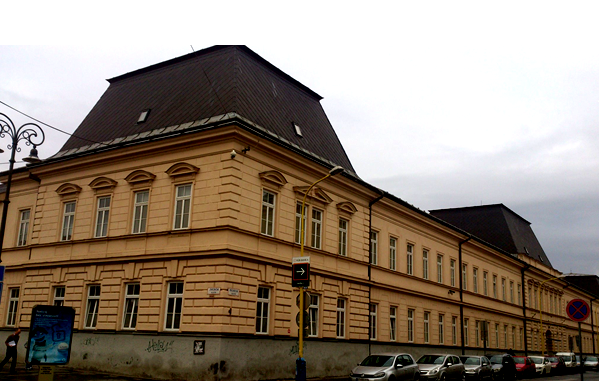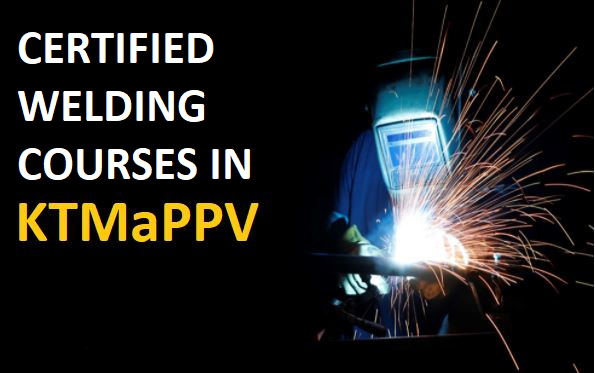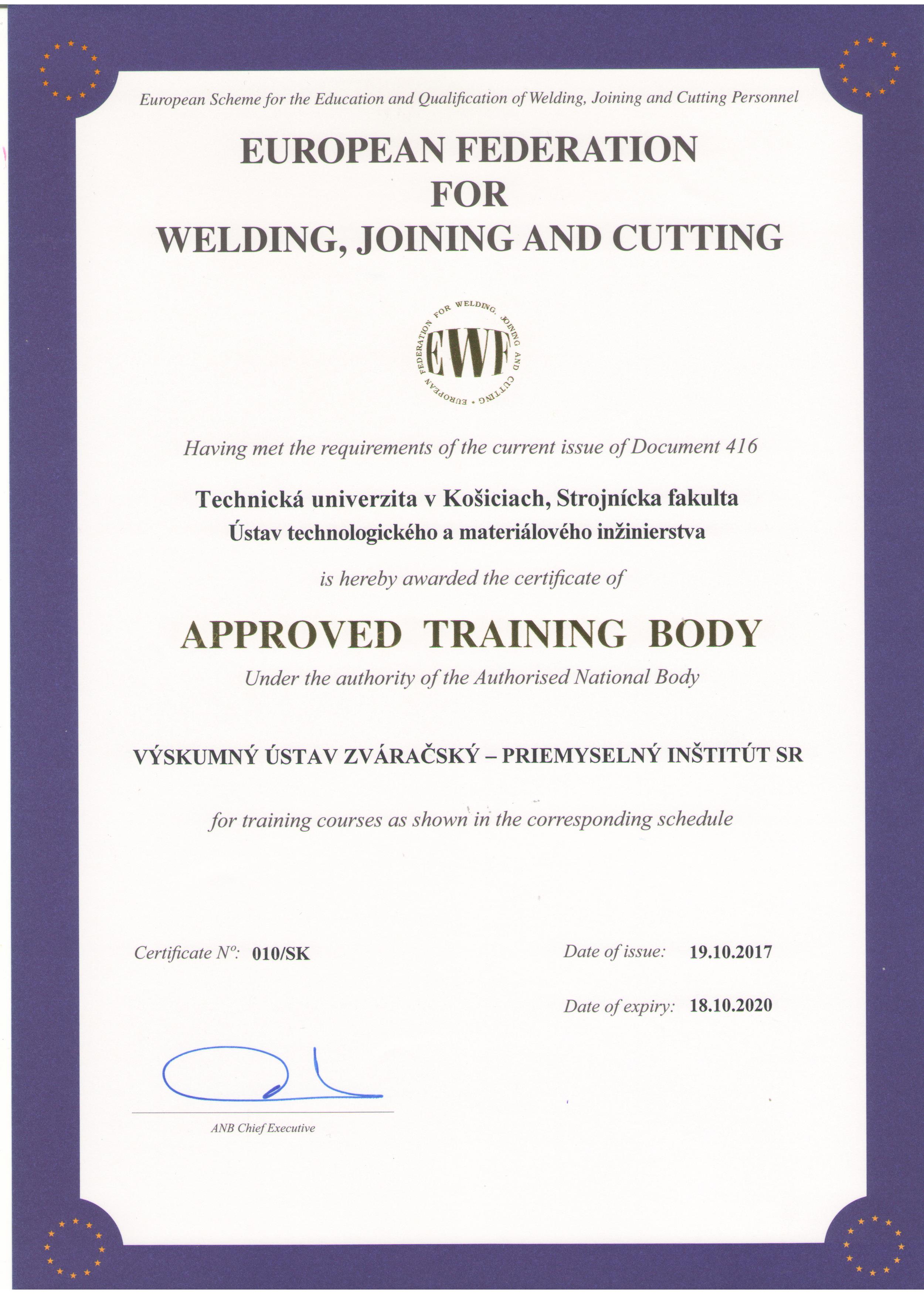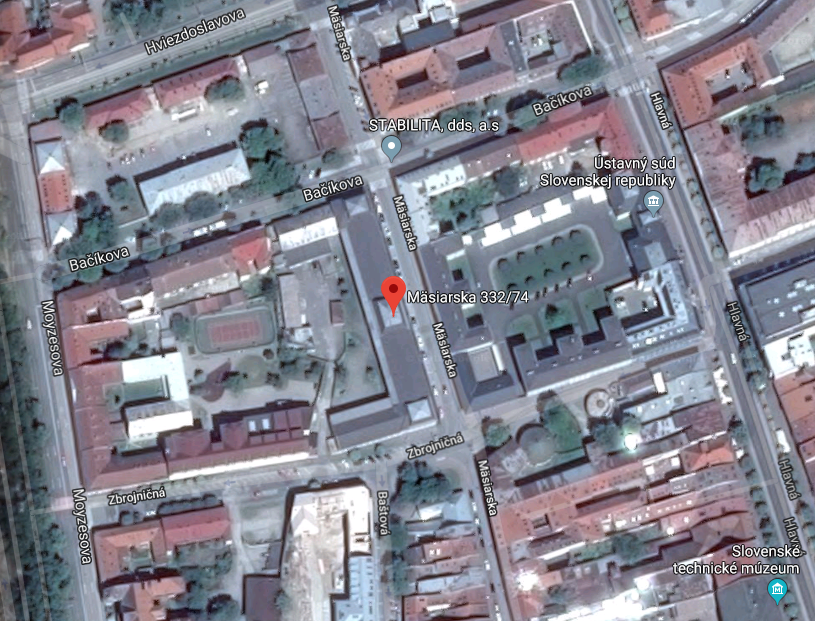Department of Technology, Materials and Computer - Aided Technologies is one of the profiling departments of the faculty. Provides teaching of technological, material and technological - economic subjects as well as subjects from the field of automotive production and computer support of engineering production from the 1st year to state examinations in bachelors, engineering and PhD. studies.
Department is the quarantor of habilitation and inauguration proceedings in the field of study Engineering Technologies and Materials. At present, all acreditations of study programs are in bachelors, engineering, PhD. studies and accreditation of habilitations and inaugurations without a time limit.
Study programs of the department
1995 – 2009
Teaching in the only accredited study program in Slovakia „Expertise in industry“ in engineering study and „Forensic engineering“ (specialization Mechanical Engineering) in PhD. study.
2002 – 2009
Based on the requirements of practice, teaching began in the study program „Plastics Processing“, at that time the only such oriented study program in Slovakia.
History – practical experience – formability of sheets
In the second half of the eighties, the Department of Computer Science began to use the Department of Computability of Sheet Metal Formability, thanks to which mathematical models were solved for an alternative design of the technology of pressing stampings of various basic geometric shapes. Necessary programs were also developed for solving these models using computer technology.
Among the new progressive technologies, which resulted in the solution of some tasks, are mainly the technology of retraction and the technology of precision cutting. At KSTaM, several research tasks from volume forming were solved (semi-hot forging, tool forging, etc.).
the department was intensively involved in cooperation with VSŽ in Košice and Škoda Mladá Boleslav focused on the development of higher strength steel sheets for the automotive industry. The cooperation in the introduction of serial production of the Škofa Favorit passenger car was particularly important, where, based on the analysis of the deformation of individual body parts, the requirements for sheet metal for the production of a specific part were determined.
History - practical experience - thin packaking sheets
The staff of the department played an importance role at the turn of the eighties and nineties of the last century in the analysis of problems of breaking the packaging of meat cans in Czechoslovakia, where the causes of breaking the packaking were defined on the basis of research results. Since then, the department has been a leader in the field of research of thin packaking sheets in the region of Central Europe. With these results, KSTaM ranks among the important workplaces, especially in surface forming not only in the Slovak Republic, but also in the world. It was these results that prompted the IDDRG to accept a KSTaM employee as its member and at the same time the national coordinator of the Slovak Republic membership in this important scientific world organization, which was first prof. Ing. Andrej Hrivnák, CSc. and since 2002 prof. Ing. Emil Spišák, CSc.
History - practical experience - surface treatment
In the field of surface treatment technologies, the department was one of the first in the whole of the Czechoslovak Republik, which in its focus, based on the issue of thermal spraying of metals, began to pay more attention to surface pretreatment with coatings. The result of several decades of research is extensive scientific, publishing and practical activities, including activities in many surface treatment technologies. During this period, the research and pedagogical team laid the theoretical foundations of the blasting process as a priority technology of mechanical surface pretreatment in terms of cleaning and roughening effect with a focus on a wide range of metallic and non-metallic materials.
New original findings have been obtained in the study of the formation and properties of ceramic coatings obtained by plasma spraying by water stabilization of the arc, especially in terms of resistance to cyclic thermal shocks, porosity and methods of their detection, impregnation and sealing, sliding properties and wear.
History - practical experience - machining
Research activities in the field of machining focused on the following focus areas: innovative procedures in machining technology, evaluation of machinability of construction materials and cutting properties of new tool materials, abrasion-resistant layers on tools, tool wear, energy intensity during machining.
The development of knowledge in machining technology is derived from the accompanying phenomena in the cutting zone. Several works are devoted to this aspect, following the 40-year tradition of research in the field of machining, preferably in terms of the level and distribution of the deformation, the effects of the external environment, added energy sources. A comprehensive overview of the development of knowledge about the cutting zone was prepared at the workplace, covering the period from 1945.
The research obtained data on machinability, especially when machining using new tool materials (coated cintered carbides, cutting ceramics, tool based on boron nitride and diamond). The proposed cutting system evaluation system contains seven relevant outputs (cutting force, resistivity, specific chip deformation, friction coefficient, cutting edge stress load, wear intensity and cutting edge durability) and makes full use of the existing level of knowledge in cutting theory recommended intervals of cutting speeds, derived according to correction factors. The procedure guarantees the economical use of the cutting properties of the tools during a given time period with a high statistical probability.
Modernization of laboratory equipment of the department
2006 – 2011
During this period, the laboratory equipment of all laboratories of the department was substantially modernized. Many of the facilities are unique not only in th eregion but also in Slovakia.
Scientific research projects at the department
The research projects of grant agencies APVV, VEGA, KEGA, 7RP, Tempus, Inco-Copemicus, CEEPUS are solved at the department. The department has extensive cooperation with SAV workplaces, university workplaces in Slovakia and abroad, as well as good cooperation with research and development workplaces and with production practice.
Former professors at the department
In the past, in addition to the already mentioned professors, prof. Ing. Michal Šefara, CSc., prof. Ing. Ladislav Pollák, CSc., prof. Ing. Imrich Kažimír, CSc., prof. Ing. Karol Takáč, CSc. a prof. Ing. Dušan Kniewald, PhD.
Objectives of the department
One of the main goals of the department is to constantly respond to changes in the external environment characterized by engineering production with an increased level of sophistication of production, innovation, high technologies, agility od production systems and network cooperation. The main challenge is to actively contribute to technological change and prepare a new generation of „¡nnovators“ for it.














